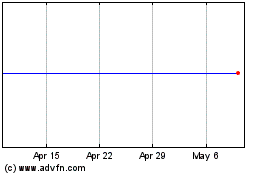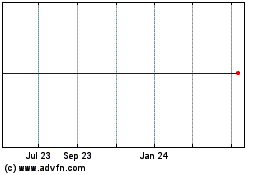Eidos Therapeutics to Present at the 2019 Cantor Global Healthcare Conference
September 19 2019 - 8:00AM

Eidos Therapeutics, Inc. (Eidos) (Nasdaq: EIDX) today announced
that management will present at the 2019 Cantor Global Healthcare
Conference on Thursday, October 3rd at 3:00 p.m. EDT in New York,
NY.
A live audio webcast of the presentation can be accessed through
the Events & Presentations section of the company's website at
ir.eidostx.com. Archived replays of the webcast will be available
on the company's website for 90 days following the live
presentation.
About AG10
AG10 is an investigational, orally-administered small molecule
designed to potently stabilize tetrameric transthyretin, or TTR,
thereby halting at its outset the series of molecular events that
give rise to TTR amyloidosis, or ATTR. In a Phase 2 clinical trial
in patients with symptomatic ATTR-CM, AG10 was generally well
tolerated, demonstrated greater than 90 percent average TTR
stabilization at Day 28, and increased serum TTR concentrations, a
prognostic indicator of survival in a retrospective study of
ATTR-CM patients, in a dose-dependent manner.
AG10 was designed to mimic a naturally-occurring variant of the
TTR gene (T119M) that is considered a rescue mutation because
co-inheritance has been shown to prevent or ameliorate ATTR in
individuals also inheriting a pathogenic, or disease-causing,
mutation in the TTR gene. To our knowledge, AG10 is the only TTR
stabilizer in development that has been observed to mimic the
stabilizing structure of this rescue mutation.
The Phase 3 ATTRibute-CM study of AG10 in patients with ATTR-CM
is underway in the United States and Europe. Part A of the study
will assess the change from baseline in 6-minute walk distance
(6MWD) at 12 months. Part B of the study will evaluate reduction in
all-cause mortality and frequency of cardiovascular-related
hospitalizations will be evaluated at 30 months. In addition, Eidos
plans to initiate a Phase 3 study of AG10 in ATTR polyneuropathy
(ATTR-PN) in the second half of 2019.
About Transthyretin Amyloidosis (ATTR)
There is significant medical need in transthyretin amyloidosis
(ATTR) given the large patient population and an inadequate current
standard of care. ATTR is caused by the destabilization of TTR due
to inherited mutations or aging and is commonly divided into three
distinct categories: wild-type ATTR cardiomyopathy (ATTRwt-CM),
mutant ATTR cardiomyopathy (ATTRm-CM), and ATTR polyneuropathy
(ATTR-PN). The worldwide prevalence of each disease is
approximately 400,000 patients, 40,000 patients and 10,000
patients, respectively.
All three forms of ATTR are progressive and fatal. For patients
with untreated ATTRwt-CM and ATTRm-CM, symptoms usually manifest
later in life (age 50+), with median survival of three to five
years from diagnosis. ATTR-PN either presents in a patient's early
30s or later (age 50+), and results in a median life expectancy of
five to ten years from diagnosis for untreated patients.
Progression of all forms of ATTR causes significant morbidity,
impacts productivity and quality of life, and creates a significant
economic burden due to the costs associated with progressively
greater patient needs for supportive care.
About Eidos Therapeutics
Eidos is a BridgeBio Pharma subsidiary focused on addressing the
large and growing unmet need in diseases caused by transthyretin
(TTR) amyloidosis (ATTR). Eidos is developing AG10, a potentially
disease-modifying therapy for the treatment of ATTR. For more
information, please visit www.eidostx.com.
Media Contact:
Carolyn Hawley, Canale Communications, (619) 849-5382,
carolyn@canalecomm.com
For Investors:
John Grimaldi, Burns McClellan, (212) 213-0006,
jgrimaldi@burnsmc.com
Eidos Therapeutics (NASDAQ:EIDX)
Historical Stock Chart
From Mar 2024 to Apr 2024

Eidos Therapeutics (NASDAQ:EIDX)
Historical Stock Chart
From Apr 2023 to Apr 2024
